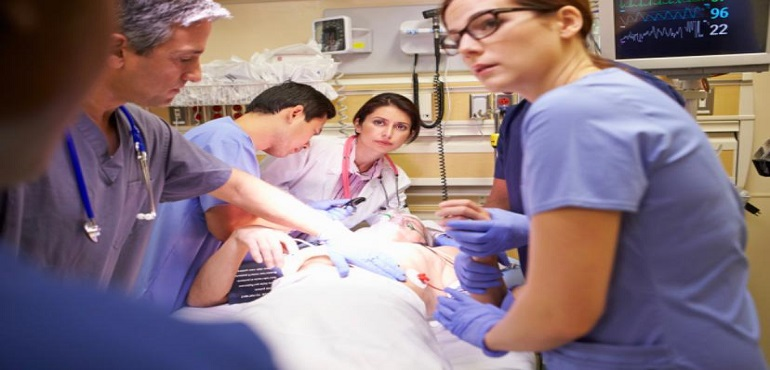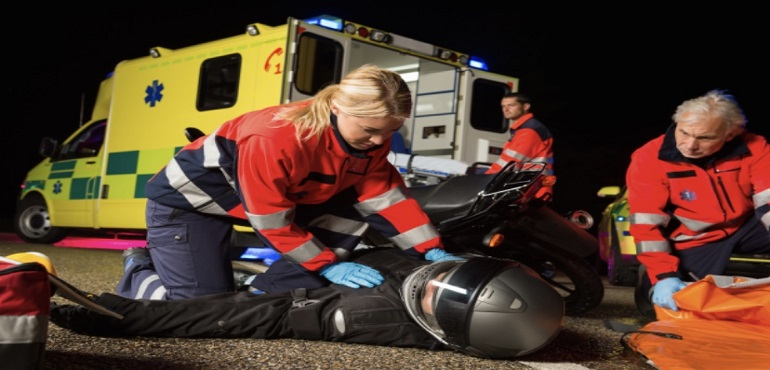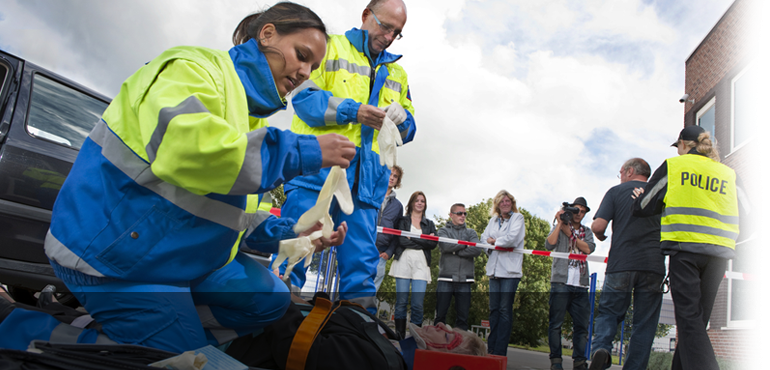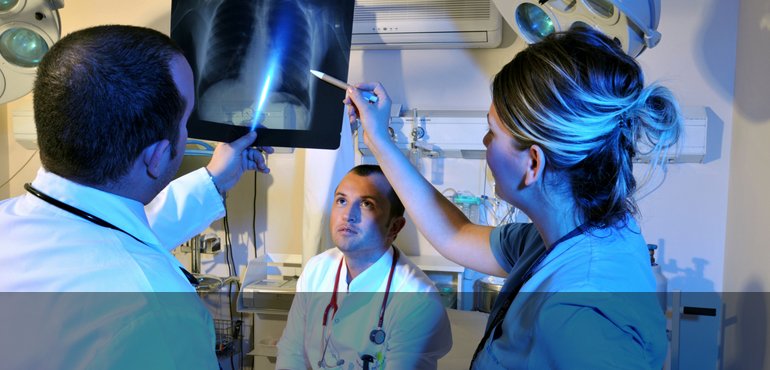| Toll Free : 1844 495 7333(injury hotline- new cases only) | |
| Text a Personal Injury Lawyer 24/7 and get instant help.TM (416 931 5015) | |
| Head Office : 905 495 7333 |
Signs To Red Flag In Traumatic Brain Injury
July 22, 2017Brampton personal injury lawyers understand the importance of early diagnosis and intervention in the case of Traumatic Brain Injury (TBI) following an accident.
Brain injuries can range from mild to severe. They largely depend on the area of the brain affected and the extent of injury. One of the main concerns with diagnosis and treatment of TBI is that the symptoms don’t always manifest immediately.
Causes of TBI
TBI may be of the open or closed type, where the skull is damaged or not. These injuries may occur due to several reasons, including:
- Direct blow to the head
- Gunshot wounds
- Violent shaking of head and neck
- Severe whiplash
- Sudden movement or momentum change
- Motor-vehicle/bicycle/motor-cycle/pedestrian accidents
- Slip and fall accidents
- Fall from a height
- Assault
- Being ejected from a moving vehicle
- Sports injuries
- Explosives
Additionally, if a person has suffered TBI previously, another severe damage to the head can compound the symptoms, especially if the first injured was not completely healed or resolved.
Statistically, young adults in the age-group of 15-19, older people above 65 and males across all age groups are more likely to sustain TBI.
Here you can read about Bad Habits that Can Hurt Your Brain
Diagnosis
TBI is initially diagnosed by physical examination and clinical interview with the victim following the accident. It is confirmed by CT scans, MRI etc but some cases of mild TBI may not show in imaging. In these cases, keeping the history of the person in mind and syncing it with the behavioral, emotional and cognitive aspects.
A multi-disciplinary team of professionals is involved in the diagnosis, which includes speech/language pathologists, audiologists, physicians, psychiatrists, nurses, physiotherapists, vocational and occupational therapists, social workers, employers, educationists etc.
In the case of children, infants or babies, the parent or care-giver’s report is important. Our experienced Brampton personal injury lawyers can assist victims by ensuring that the right diagnosis is obtained.
Signs and Symptoms
It is important for friends, family-members, co-workers and anyone else who is in regular contact with an accident victim to be vigilant and alert for certain symptoms that could indicate TBI.
Depending on the severity, they include:
- Cognitive deficits
- Mood swings
- Unexplained headaches
- Confusion
- Light-headedness
- Dizzy spells
- Blurred vision
- Ringing in the ears
- Excessive exhaustion
- Drowsiness
- Sleep disturbances
- Bitter taste in the mouth
- Light and sound sensitivity
- Behavioral or personality changes
- Inability to concentrate
- Physical problems like loss of balance, nausea, swallowing difficulty
- Thinking skills deficit: Processing information, problem solving, orientation, executive functioning, goal setting
- Seizures
- Speech disorders
- Social-Emotional problems
The list could go on, based on the type of injury and the area of the brain that is affected.
Treatment
Prolonged hospitalization, surgery and extensive rehabilitation are required. It can be a short or long-term or lifetime requirement.
Speech and physical therapies are essential. Psychiatric evaluation, neuro-psychological assessment and frequent monitoring of the person’s condition are required. Prevention of secondary complications and restoration of available functions is begun.
In the case of long-term/permanent disability, assistive technology and therapies are required, along with medications. Life-long care, vocational and re-educational aspects are also essential. Our car accident lawyers work with the family to analyze the future care of the person.
Signs To Red Flag In Traumatic Brain Injury
July 22, 2017Brampton personal injury lawyers understand the importance of early diagnosis and intervention in the case of Traumatic Brain Injury (TBI) following an accident.
Brain injuries can range from mild to severe. They largely depend on the area of the brain affected and the extent of injury. One of the main concerns with diagnosis and treatment of TBI is that the symptoms don’t always manifest immediately.
Causes of TBI
TBI may be of the open or closed type, where the skull is damaged or not. These injuries may occur due to several reasons, including:
- Direct blow to the head
- Gunshot wounds
- Violent shaking of head and neck
- Severe whiplash
- Sudden movement or momentum change
- Motor-vehicle/bicycle/motor-cycle/pedestrian accidents
- Slip and fall accidents
- Fall from a height
- Assault
- Being ejected from a moving vehicle
- Sports injuries
- Explosives
Additionally, if a person has suffered TBI previously, another severe damage to the head can compound the symptoms, especially if the first injured was not completely healed or resolved.
Statistically, young adults in the age-group of 15-19, older people above 65 and males across all age groups are more likely to sustain TBI.
Here you can read about Bad Habits that Can Hurt Your Brain
Diagnosis
TBI is initially diagnosed by physical examination and clinical interview with the victim following the accident. It is confirmed by CT scans, MRI etc but some cases of mild TBI may not show in imaging. In these cases, keeping the history of the person in mind and syncing it with the behavioral, emotional and cognitive aspects.
A multi-disciplinary team of professionals is involved in the diagnosis, which includes speech/language pathologists, audiologists, physicians, psychiatrists, nurses, physiotherapists, vocational and occupational therapists, social workers, employers, educationists etc.
In the case of children, infants or babies, the parent or care-giver’s report is important. Our experienced Brampton personal injury lawyers can assist victims by ensuring that the right diagnosis is obtained.
Signs and Symptoms
It is important for friends, family-members, co-workers and anyone else who is in regular contact with an accident victim to be vigilant and alert for certain symptoms that could indicate TBI.
Depending on the severity, they include:
- Cognitive deficits
- Mood swings
- Unexplained headaches
- Confusion
- Light-headedness
- Dizzy spells
- Blurred vision
- Ringing in the ears
- Excessive exhaustion
- Drowsiness
- Sleep disturbances
- Bitter taste in the mouth
- Light and sound sensitivity
- Behavioral or personality changes
- Inability to concentrate
- Physical problems like loss of balance, nausea, swallowing difficulty
- Thinking skills deficit: Processing information, problem solving, orientation, executive functioning, goal setting
- Seizures
- Speech disorders
- Social-Emotional problems
The list could go on, based on the type of injury and the area of the brain that is affected.
Treatment
Prolonged hospitalization, surgery and extensive rehabilitation are required. It can be a short or long-term or lifetime requirement.
Speech and physical therapies are essential. Psychiatric evaluation, neuro-psychological assessment and frequent monitoring of the person’s condition are required. Prevention of secondary complications and restoration of available functions is begun.
In the case of long-term/permanent disability, assistive technology and therapies are required, along with medications. Life-long care, vocational and re-educational aspects are also essential. Our car accident lawyers work with the family to analyze the future care of the person.








